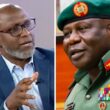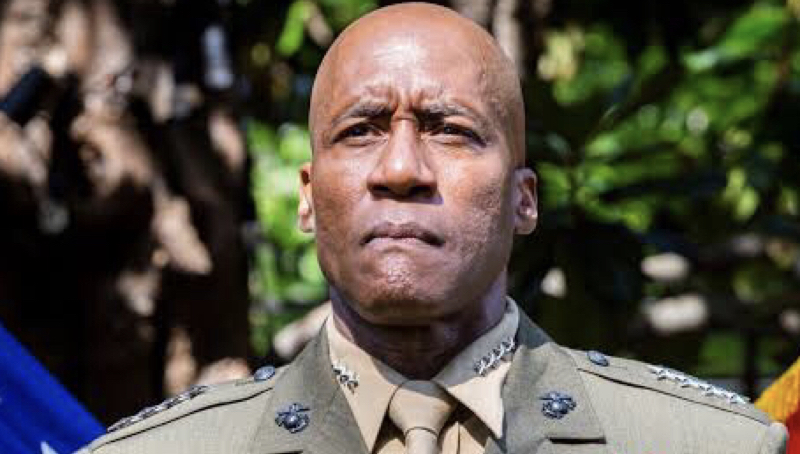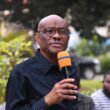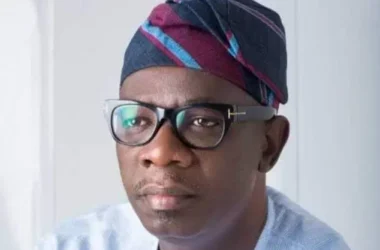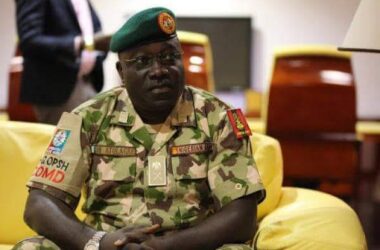The United States-led Africa Command (AFRICOM) has raised concerns about the growing interest of terrorist groups in gaining access to Nigeria and the West African coastline. According to General Michael Langley, Commander of AFRICOM, extremist groups based in the Sahel region are shifting focus toward coastal countries in a bid to expand their influence and strengthen their operations.
Speaking at the African Chiefs of Defence Conference in Nairobi, Kenya, which took place from May 28 to 29, 2025, Langley noted that the recent surge in terrorist activities across Nigeria, the Lake Chad Basin, and the wider Sahel region is troubling. He warned that if these groups secure a foothold on the coast, it would allow them to fund their operations more effectively through illegal means like arms trafficking, smuggling, and human trafficking.
Langley pointed to the increasing number of attacks in these regions and described them as both brutal and alarming.
He said, “Attacks are resurging in the Lake Chad region as well, and extremist groups are growing more aggressive. The scale and brutality of some of these incidents are troubling. So we’re monitoring this closely.*
“One of the terrorists’ new objectives is gaining access to West African coasts. If they secure access to the coastline, they can finance their operations through smuggling, human trafficking, and arms trading.
“This puts not just African nations at risk, but also increases the chance of threats reaching the US shores.”
He therefore alerted frontline coastal states, including Ghana, Côte d’Ivoire and Benin Republic to effectively secure their northern borders to prevent the terrorists from infiltrating through their flanks.
Langley assured that the US would continue to support its coastal partners, adding, “That’s why our coastal partners – Ghana, Côte d’Ivoire, and Benin – are fighting fiercely along their northern borders to prevent terrorist expansion, and US AFRICOM is standing with them.”
He however acknowledged that the partial withdrawal of US forces from parts of Africa had constrained America’s ability to monitor and respond swiftly to terrorist activities.
But he stressed US’ continued commitment to counterterrorism partnerships, while respecting national sovereignty.
“We respect nation sovereignty and only go where we’re asked as long as it aligns with U.S. national security objectives,” he said.
The US AFRICOM Commander recalled his visit to Nigeria in November 2024, noting that it provided a firsthand view of how the US supported Nigerian defence efforts.
He added, “During my visit, I sat with Nigerian defence leaders to understand how we can help. The US acts with its partners—and in Nigeria’s case, we work together to combat Boko Haram and ISIS West Africa in pursuit of regional security.
“We are committed to supporting one of the most capable militaries in the region—Nigeria’s. Although our withdrawal has reduced our ability to monitor some developments directly, we maintain strong liaison and provide support where possible.”
Langley also noted that despite the strained relationship with Burkina Faso, the US would continue efforts to foster dialogue with the West African country.
“The US seeks opportunities to collaborate with Burkina Faso on counterterrorism challenges. I invited Burkina Faso’s chief of defence to the African Chiefs of Defence Conference because I believe in maintaining that dialogue. So it’s still open,” he said.
He also disclosed that AFRICOM had stepped up operations in East Africa, particularly in Somalia.
“At the request of the Somali government, we’ve conducted over 25 airstrikes this year alone—twice as many as last year—targeting jihadist groups,” Langley said.
Langley expressed delight that inspite of the challenges, African countries have continued to confront their security issues without waiting for any external help.
He further stated, “African militaries are not waiting to be saved. African militaries are taking on security challenges head-on, and leverage opportunities for their nations to achieve stability and prosperity.
“So right now, as I speak to you, they continue to step up and take control of their futures.”
Stressing that AFRICOM’s focus is on long-term partnership, not dependence, Langley noted, “Our goal is to deepen partnerships that empower African nations to solve African problems—not with handouts, but through trusted collaboration.
“A safe, stable, and prosperous Africa is not a charitable goal. It’s a strategic necessity for the United States and our African partners.”
The US military chief also stated that across Africa, joint military exercises were now geared toward building independence, interoperability, and crisis response capacity among African forces.
He expressed AFRICOM’s commitment to helping African militaries with advanced training and intelligence sharing while urging stronger engagement with local communities.
He said, “We are not just helping build military capacity; we’re helping create the stability that underpins African and American prosperity alike.
“AFRICOM is increasingly focused on helping our partners address the root causes of terrorism—instability at the local level—through intelligence sharing, capacity building, and institutional strengthening.
“AFRICOM aims to support African nations in building the self-reliance needed to confront terrorism and insurgency by assisting in building strong, capable military and security forces.
“Our partnership is summed up in three words: peace through strength. Strong partnerships are the best representation of that thought because we’re always stronger when we stand together.”



